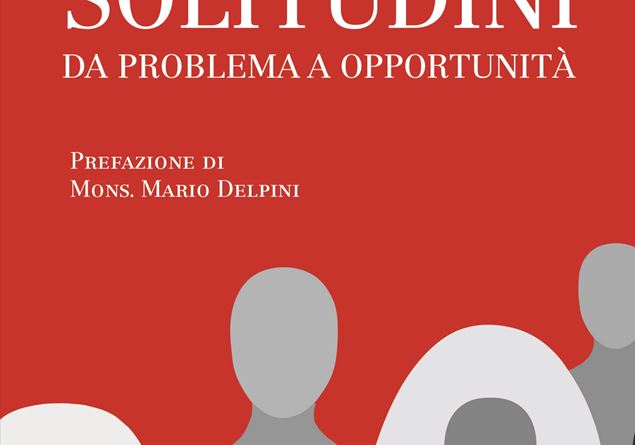“To be born is to respond, taking the first steps requires being reassured by an outstretched hand, by a promised embrace. Growing up means seeking the possibility of being alone, claiming to be independent, imagining that being free means being without ties, setting yourself up as a criterion of good and evil, speaking to be listened to, to express yourself, not to communicate. The conjugation of verbs becomes monotonous. It only has the first person singular: I, I, I. The house becomes an apartment, that is, living as to withdraw. Security is ensured by armored separation, which one would like to be inaccessible. Tranquility is the fruit of anonymity: putting a number on the intercom, so as not to be disturbed. One is born in a communion, one prepares to die in solitude”.
The words, pronounced by the archbishop of Milan Mario Delpini on September 14, 2024, we read in the preface of the book “Solitudes. From problem to opportunity” (Edizioni San Paolo), edited by Danilo Mauro Castiglione, a secular Benedictine oblate originally from Catania, now a teacher in Bergamo. It is a collective work that explores the different meanings of loneliness and the answers provided by various fields of study. The essay will be presented on Tuesday 11 November at 3pm in the Senate Library, in Rome.
“The choice of the plural”, explains Castiglione, “starts from the fact that there are different solitudes. The first chapter talks about the solitude of elderly people found dead, like the woman who was recently found in her apartment in the province of Milan ten years after her death. No one had noticed. Then we deal with young people overwhelmed by the world of the internet. A chapter is dedicated to the relationship between institutions and solitudes, with interviews with the Japanese Ministry of Solitude and the European Union representative for the management of solitudes. In the third chapter we talk about the history of the sociology of solitude. After a chapter of analysis of a questionnaire, I write about philosophical solitude from Seneca and Marcus Aurelius up to Franco Battiato. In the sixth chapter we present the counter-current solitude of the magistrate Rosario Livatino, of Nazarena, a Camaldolese hermit who lived between 1945 and 1990 on the Aventine Hill, of the mathematician Alexander Grothendieck, of Catherine. de Hueck-Doherty. In the last chapter we talk about the solitude inhabited by God”.
An original and wide-ranging analysis of a phenomenon that according to Castiglione “we only know as the problematization of the human condition”, but which can also represent an opportunity.
“I am a teacher”, confides Castiglione, “so mine is a non-radical solitude. I live alone, but mine is a solitude inhabited by God, made up of research and silence, preparatory to listening and meeting others. This book was also written by many hands. Together with Dom Fabio Bellutti, Enrico Ubiali and Eugenio Bagnini. We were a different city, but connected, ours was a creative and productive solitude.”


